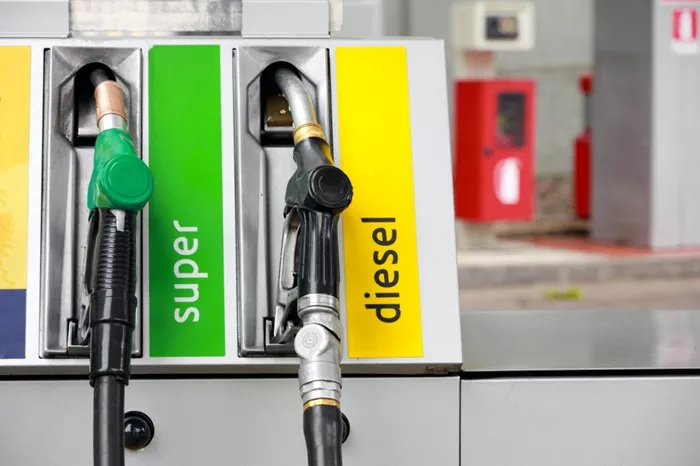In the realm of global energy markets, the production and pricing of diesel and gasoline are influenced by a complex interplay of factors ranging from production costs and taxes to market demand and energy policies. Understanding these dynamics is crucial for assessing why diesel is often cheaper to produce than gasoline, how taxes impact retail prices, the role of demand factors in price fluctuations, and the evolving landscape influenced by electric vehicles and energy policy shifts.
Production Costs: Diesel vs. Gasoline
The production of diesel and gasoline starts at the refining stage of crude oil. Crude oil is a complex mixture of hydrocarbons that requires refining to separate into different products based on molecular size and properties. Diesel and gasoline are both derived from this refining process but through different refining methods.
Diesel typically requires less refining compared to gasoline. This is because diesel fuel has a higher boiling point and a simpler refining process, which involves fewer steps such as catalytic cracking and reforming. Gasoline, on the other hand, undergoes more complex refining processes to achieve the desired octane ratings and volatility characteristics suitable for use in internal combustion engines.
Moreover, diesel is a heavier fraction of crude oil compared to gasoline, meaning it requires less energy-intensive refining processes for separation. These factors contribute to lower production costs per gallon of diesel relative to gasoline.
Tax Impact on Retail Prices
Taxes play a significant role in determining the final retail price of both diesel and gasoline. In many countries, diesel fuel is subject to higher taxes compared to gasoline. The rationale behind this varies but often includes environmental and revenue considerations.
Governments may impose higher taxes on diesel due to its historical use in commercial transportation and industry, which has raised concerns about its environmental impact, particularly in terms of air quality and particulate emissions. Gasoline, being primarily used in passenger vehicles, may benefit from lower tax rates aimed at promoting consumer affordability and economic competitiveness.
These tax differentials influence consumer behavior and market dynamics. Higher diesel taxes can lead to increased retail prices, impacting industries reliant on diesel, such as transportation and agriculture, more significantly than those primarily using gasoline.
Demand Factors and Price Fluctuations
The demand for diesel and gasoline is influenced by a range of factors including economic activity, seasonal variations, and sector-specific needs. Diesel is crucial in sectors requiring heavy-duty transportation, such as freight logistics, construction, and agriculture. Seasonal fluctuations in agricultural activity or industrial production can affect diesel demand, leading to price variability.
Gasoline, being predominantly used in passenger vehicles, is influenced by factors like commuting patterns, consumer spending, and travel behaviors. Seasonal variations, such as increased travel during holidays or vacation seasons, can impact gasoline demand and prices accordingly.
The degree of dependence of various industries on diesel versus gasoline varies significantly. Industries that rely heavily on diesel-powered machinery and transportation fleets are more sensitive to diesel price fluctuations, which can impact operational costs and profitability.
See also: Fuel Oil Vs. Propane: Which Is Cheaper?
Energy Policy and Market Dynamics
Global energy policies and market dynamics exert considerable influence on diesel and gasoline prices. Policies aimed at reducing carbon emissions, promoting renewable energy sources, or regulating air quality standards can impact the demand for diesel and gasoline.
For instance, regulatory changes mandating stricter emission standards may drive up compliance costs for diesel engines, influencing diesel demand and pricing. Similarly, shifts towards renewable energy sources or electrification in transport can affect long-term projections for diesel and gasoline consumption.
Market dynamics such as geopolitical events, supply disruptions, and global economic trends also play pivotal roles in fuel price volatility. Changes in crude oil prices, refinery capacities, and distribution networks can amplify price fluctuations in diesel and gasoline markets.
Impact of Electric Vehicles
The rise of electric vehicles (EVs), including electric trucks, poses a transformative challenge to the diesel and gasoline markets. Electric trucks, with their potential to reduce operational costs and emissions, are gaining traction in freight and logistics sectors traditionally reliant on diesel.
The adoption of EVs, supported by government incentives and advancements in battery technology, could lead to reduced demand for diesel in transportation and logistics. This shift may influence diesel prices, particularly in regions with significant EV adoption and infrastructure development.
Furthermore, EVs in passenger vehicle segments can impact gasoline demand, potentially reducing overall consumption over time. Governments and industry stakeholders are closely monitoring these trends and adjusting policies to support sustainable energy transitions while managing economic impacts on traditional fuel markets.
Conclusion
The production, pricing, and consumption dynamics of diesel and gasoline are shaped by multifaceted factors ranging from production costs and tax policies to market demand and evolving energy policies. While diesel often benefits from lower production costs, higher taxes and sector-specific demand dependencies introduce complexities into pricing strategies and market behaviors.
The emergence of electric vehicles represents a transformative force in the transportation sector, influencing future diesel and gasoline demand trajectories. As global energy policies evolve and technology advancements accelerate, the landscape of fuel markets continues to evolve, necessitating adaptive strategies from industry stakeholders and policymakers alike. Understanding these dynamics is essential for navigating the complexities of energy transitions and ensuring sustainable economic and environmental outcomes in the years ahead.
Related topics:
Can You Use Vegetable Oil As Fuel?

